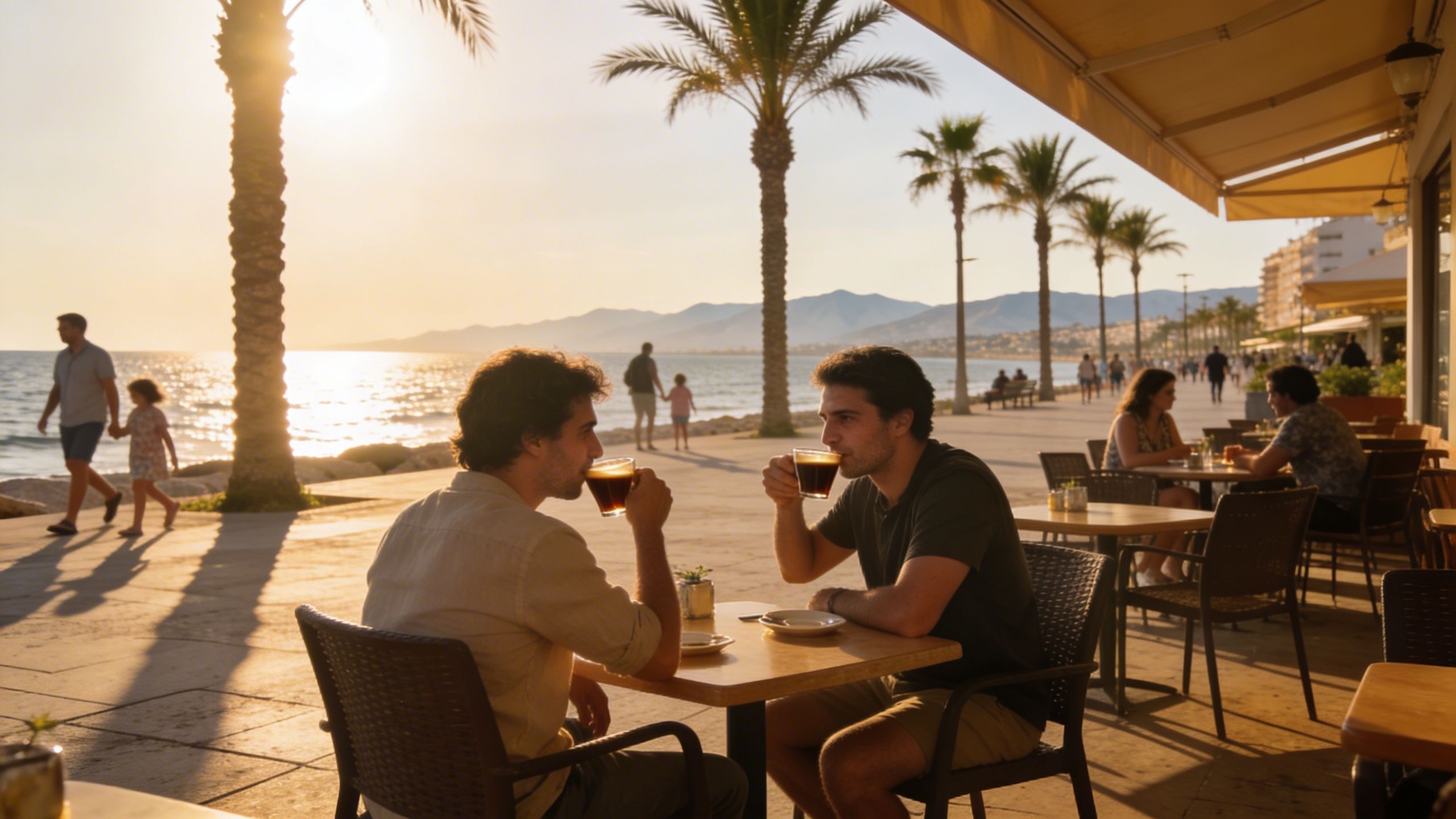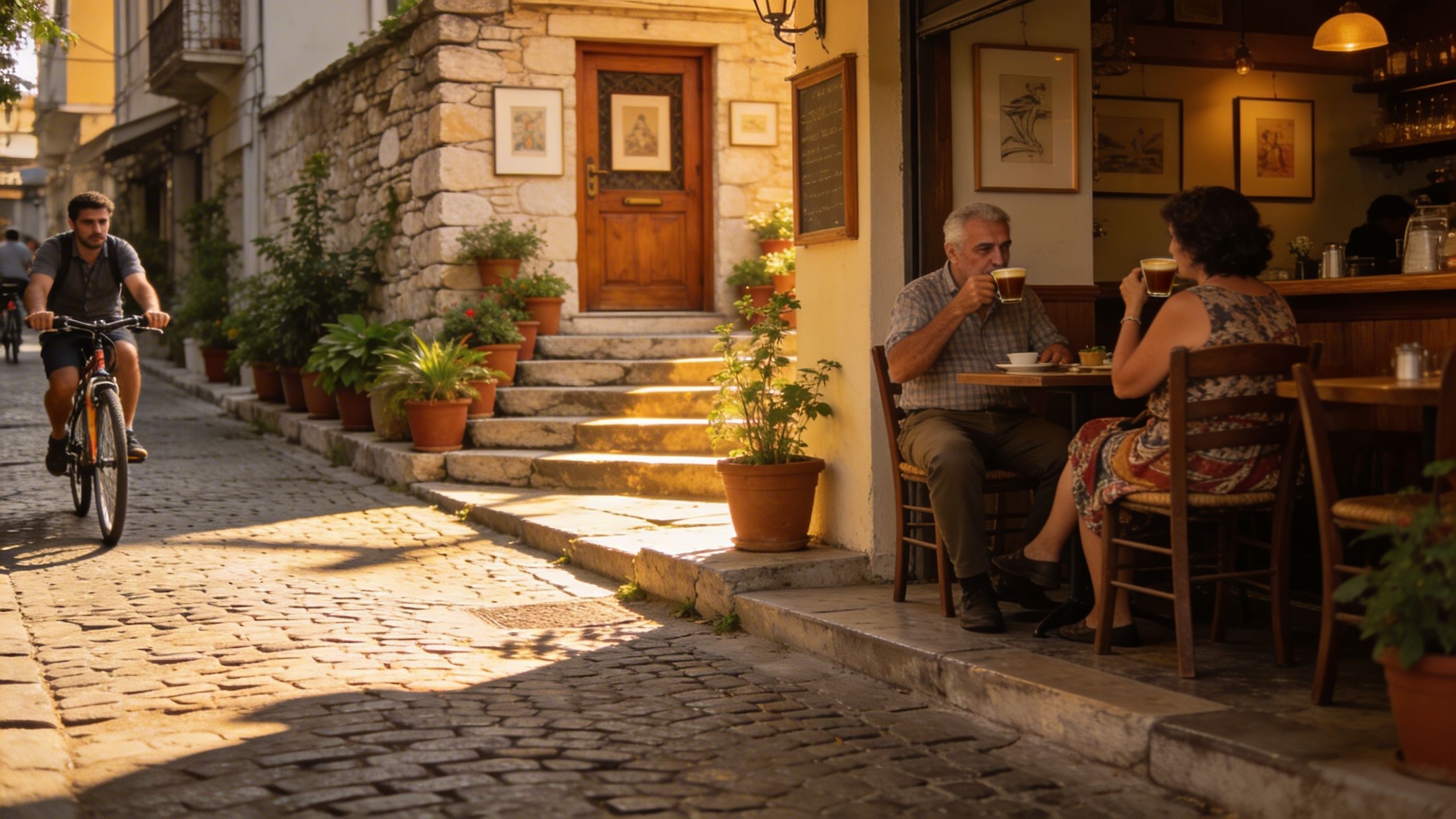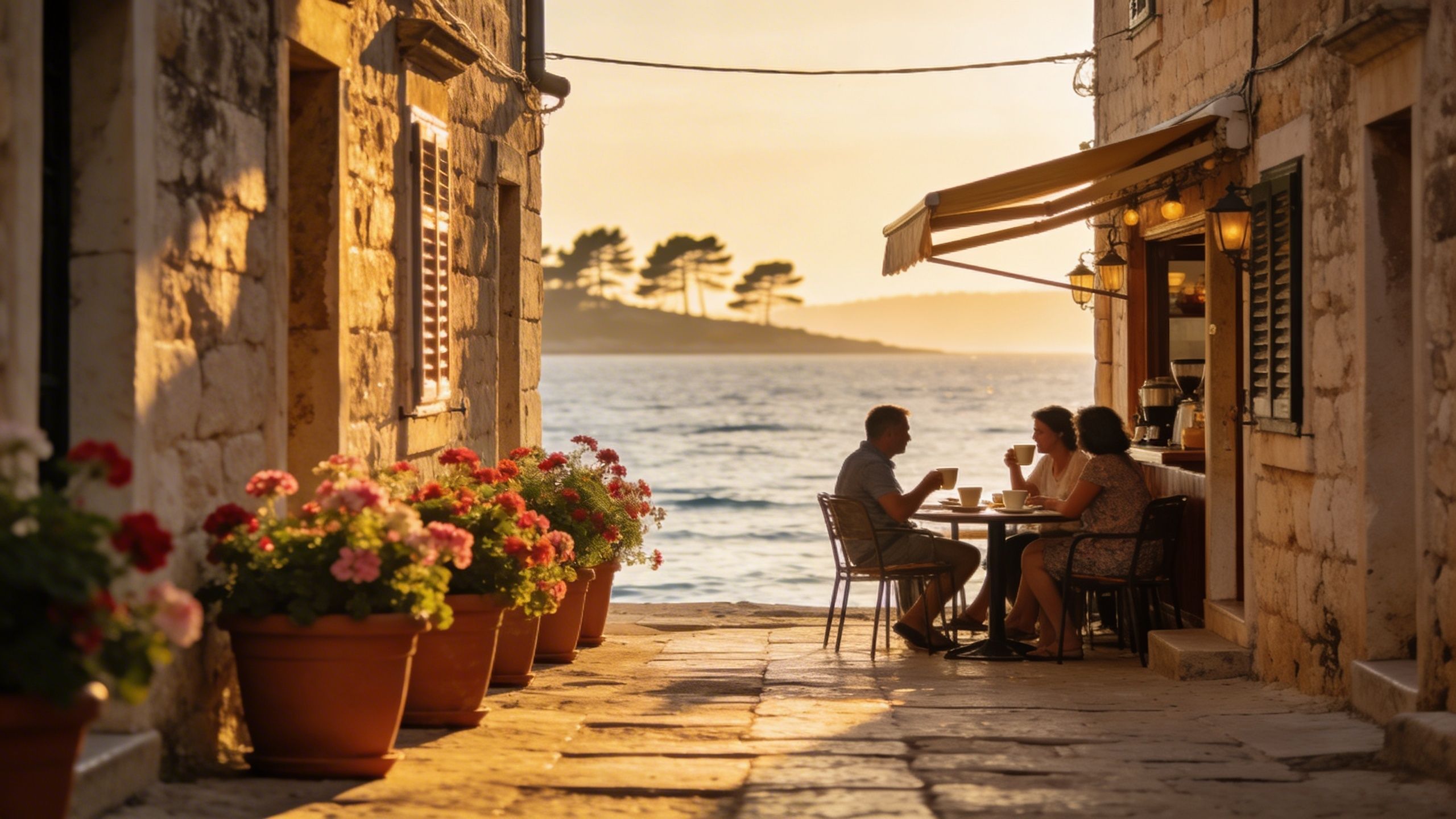Red Flags, Permits & Diagnostics When Buying in France
Practical, place-led due diligence for buying in France: permits, DDT diagnostics, planning checks and sensible sustainability upgrades backed by official sources.
Imagine stepping out at dawn to a boulangerie on a village square, morning light warming honeyed stone and lavender in a window box. In France, daily life has a deliberate rhythm — markets that set the week, cafés that hold conversations, and seasons that shape how houses breathe. For international buyers who dream of a green life here, that sensory promise sits alongside practical obligations: permits, technical diagnostics and tax realities that shape whether a house becomes home. This guide blends the romance of place with precise steps and trusted sources, so you arrive prepared and centred.
Living the French rhythm: how place shapes daily life
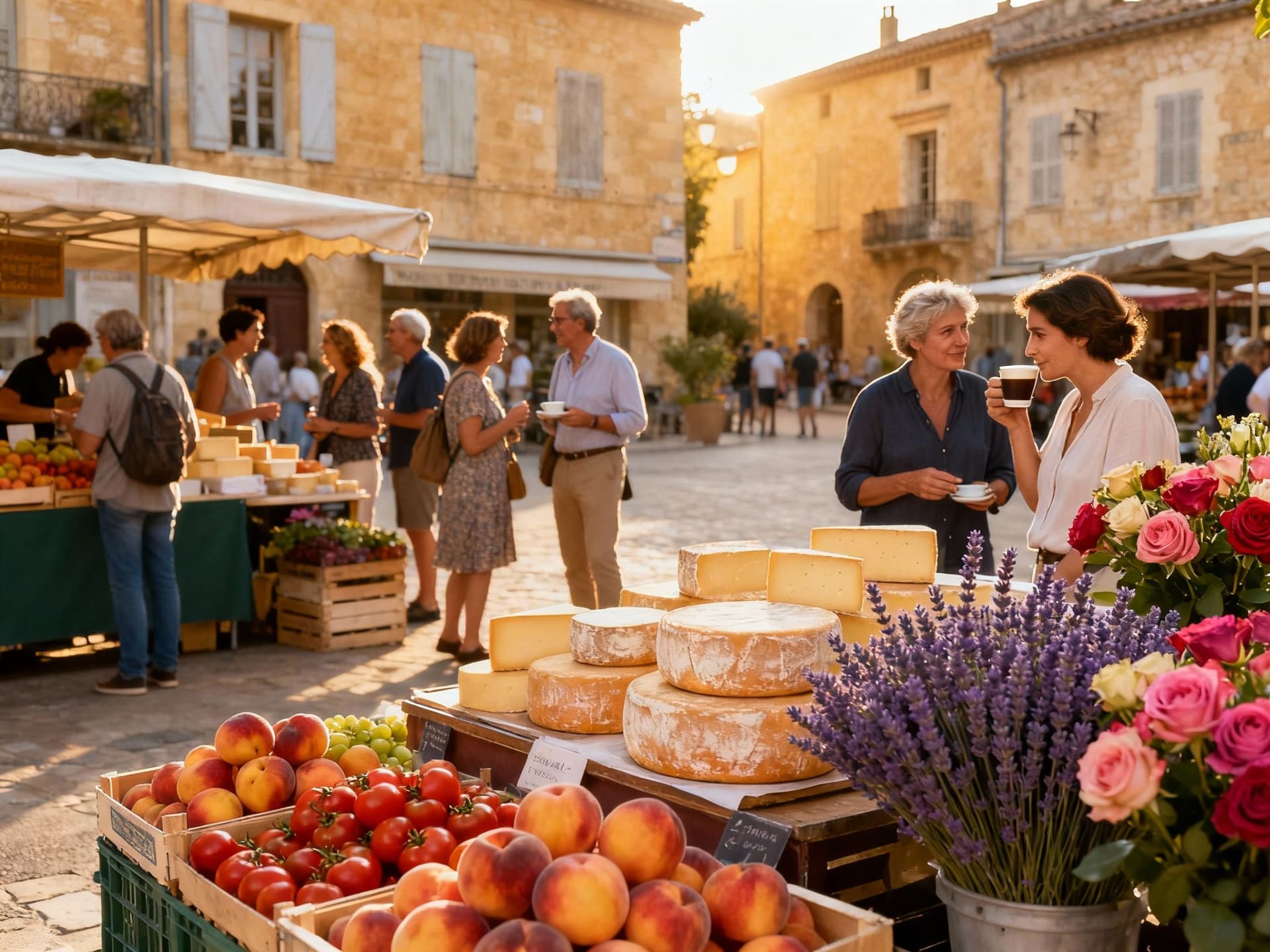
Morning in Provence is different from a weekday in the Marais or a Saturday on the Côte d'Azur. Each region carries its own texture: sun-baked stone and cypress in the south, mossy slate roofs in Brittany, and lime-washed façades in Dordogne. Your choice of home determines routines—biking to the market, walking to a café, or tending a small productive garden—and shapes the sustainable choices you can realistically make, from solar orientation to rainwater harvesting.
Neighbourhood spotlights: village life, small city, coastal stretch
A village like Gordes or Lourmarin offers cloistered lanes, morning markets and neighbours who know your name; Aix-en-Provence or Bordeaux provide cultural life and weekly markets, with easier access to specialists and sustainable suppliers. On the coast, towns such as Biarritz or Cassis mix beach culture with maritime winds that affect insulation and humidity considerations. When house-hunting, notice how public transport, local tradespeople and market days will support the low-impact lifestyle you imagine.
Food, ritual and seasons: what you’ll taste and feel
Picture a Saturday marché piled with seasonal fruit, charcuterie and farmhouse cheese; evenings where friends gather on a terrace to share a bottle from a nearby domaine. Food culture here is not only pleasure but an expression of local ecology—small producers, AOP wines and vegetable boxes shaped by rhythm and terroir. That connection to provenance also informs property choices: proximity to producers, space for a kitchen garden, and structures suited to seasonal living.
- Lifestyle highlights to seek in a location
- Weekly markets and a strong local producers’ network (example: Marché Forville in Cannes or Marché des Capucins in Bordeaux).
- A local mairie and community associations active in local stewardship and heritage renovation.
- Access to tradespeople skilled in traditional materials—stonemasons, timber carpenters, lime plasterers.
- Green infrastructure or potential: solar orientation, garden space, and rainwater/cistern suitability.
Making the move: permits, diagnostics and legal essentials
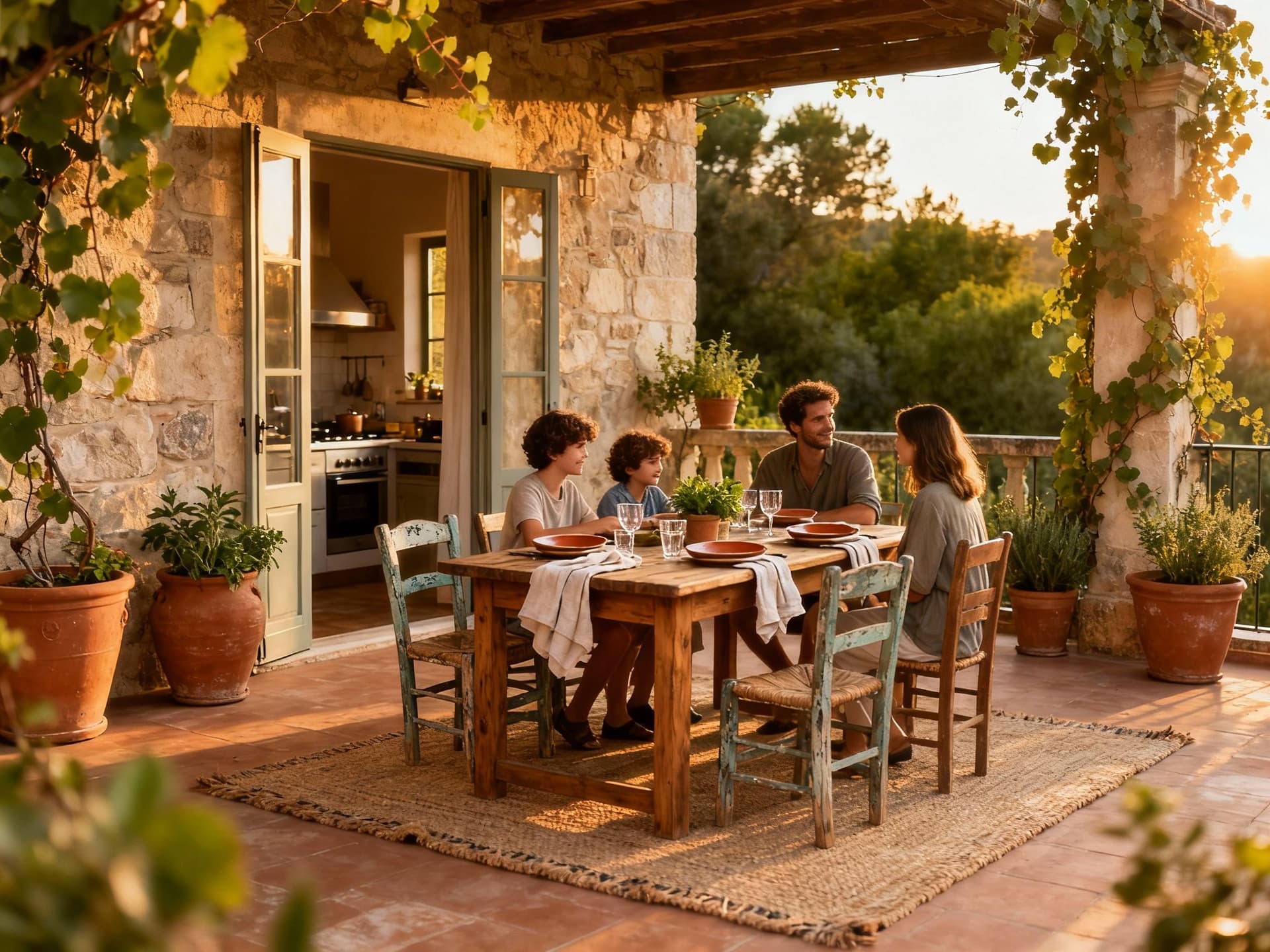
Dreams meet codes: even the most modest restoration often touches planning rules, historic protections or neighbour rights. In France you’ll typically check the local Plan Local d’Urbanisme (PLU) with the mairie, confirm whether a property lies in a protected site, and determine if your work requires a déclaration préalable or a permis de construire. Early enquiries save months of delay and guard against costly reversals after purchase.
Key property diagnostics: the DDT and why it matters
The dossier de diagnostic technique (DDT) aggregates reports—DPE (energy), plomb, amiante, termites, electric/gas checks and ERP (risks)—that protect buyer and seller. An up-to-date DPE is crucial: properties rated F or G can face forced renovation timelines and resale discounts. Engage reputable diagnostiqueurs and review reports carefully; missing or misleading diagnostics can become legal vices cachés after closing.
Working with local experts: notaires, architects and diagnostiqueurs
A notaire finalises the sale and ensures taxes, servitudes and title are clear; their fees and formal checks are mandatory and public. An architect or architecte DPLG can advise on renovations that respect heritage rules and improve energy performance. For sustainability-first buyers, ask experts about opportunities to add heat pumps, solar PV, insulation with natural materials, and whether planned changes require a permis de construire or a simply déclaration préalable.
Insider knowledge: financial and practical red flags
Experienced expats often tell the same stories: a beloved stone house that hid damp problems, or a renovated farmhouse complicated by an unpermitted extension. Look for clear invoices for past work, recent diagnostics, and a full history of planning permissions. Be wary when sellers resist independent inspections or when a property’s energy label is unusually generous without supporting documentation.
Cultural and administrative realities: language, timelines, taxes
Administratively, France values paperwork and formal process; expect formal offers, not verbal agreements, and a typical timeline of weeks between promesse de vente and acte authentique. Non-resident buyers pay certain taxes differently and should consult impôts for income and property tax implications. Budget for notaire fees (roughly 7–8% for older homes), possible capital gains rules if reselling, and communal taxes like taxe foncière.
- Practical steps to reduce risk (step-by-step)
- Engage a trusted notaire early to run title checks and servitude searches, and request all permits and invoices for past works.
- Commission a full DDT and independent structural/roofing inspections to verify state and energy performance.
- Confirm local planning rules at the mairie and consult the PLU; ask whether the property lies in a secteur sauvegardé or périmètre des monuments historiques.
- Obtain written estimates from local trades for planned sustainability upgrades (insulation, solar, heat pump) and factor these into your offer.
What expats wish they’d known: lived lessons
Buyers often underestimate how much an honest energy audit affects value and future running costs. Recent reporting shows homes labelled F or G can face significant market discounts and enforced renovation timelines, making DPE a practical and financial priority. Embrace that reality: a modest retrofit now can preserve value, improve comfort, and align your home with a regenerative lifestyle.
Long-term stewardship: how a house becomes a home for seasons
Think in seasons: orient living rooms to catch winter sun and design shaded terraces for summer ease. Prioritise breathable natural insulation and moisture-managing finishes in older stone houses. Build relationships with neighbours, local producers and a reliable team of tradespeople—these social ties are as important as structural work for long-term stewardship of place.
- Checklist for sustainable stewardship after purchase
- Audit heating and hot water systems; prioritise efficient heat pumps or biomass where sensible.
- Upgrade insulation using natural materials (sheep’s wool, hemp, wood fibre) to protect historic fabric and indoor air quality.
- Plan a phased retrofit to spread costs and maximise grant eligibility (MAPrimeRénov’, local incentives).
France offers a rare mix of cultural depth and ecological potential; with careful due diligence you can secure a property that supports both a verdant lifestyle and long-term value. Start with reliable diagnostics, engage local experts who share your sustainability goals, and let the rhythms of place shape practical decisions. When the paperwork is in order, the reward is ordinary magic: an olive tree in the courtyard, neighbours who bring jars of jam, and a home that feels part of a living landscape.
Next steps: request a full DDT, commission independent inspections, and consult a notaire and local architect before signing. If you’d like, Moss & Hearth can connect you with specialists who pair conservation-minded practice with local knowledge so your purchase becomes a long-lived, low-impact home.
Swedish advisor who left Stockholm for the Costa Brava in 2019. Specializes in sustainable, sea‑view homes for Scandinavian buyers and green finance insights.
